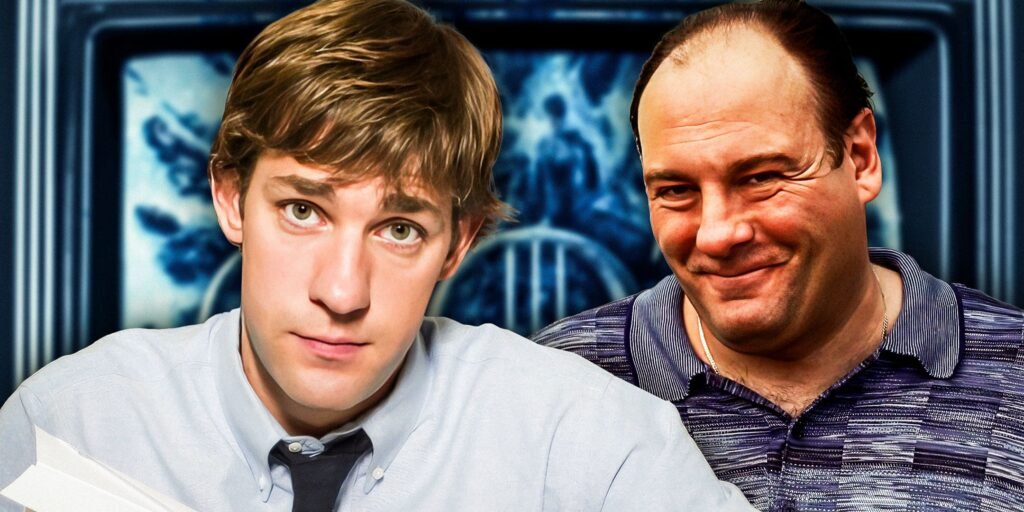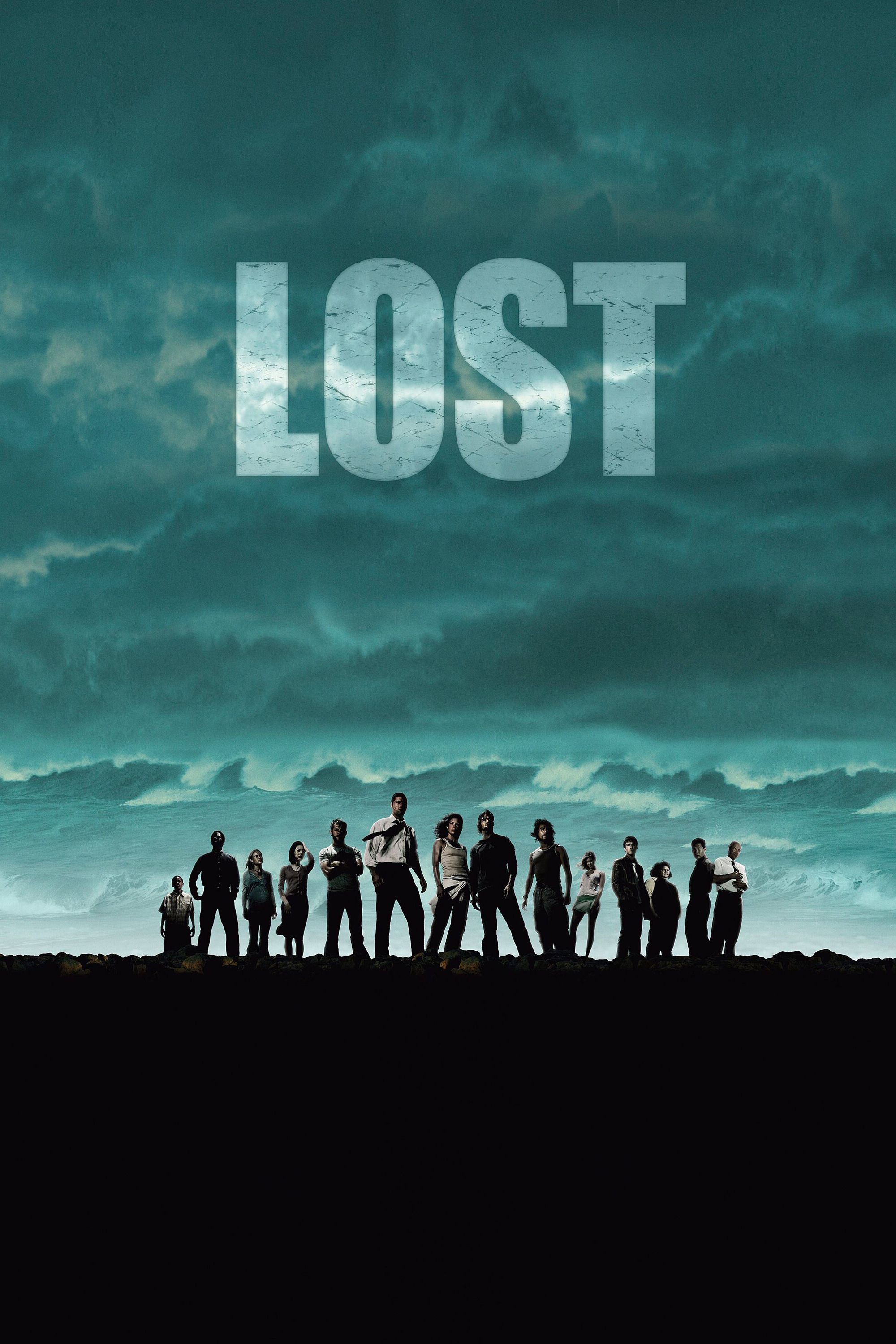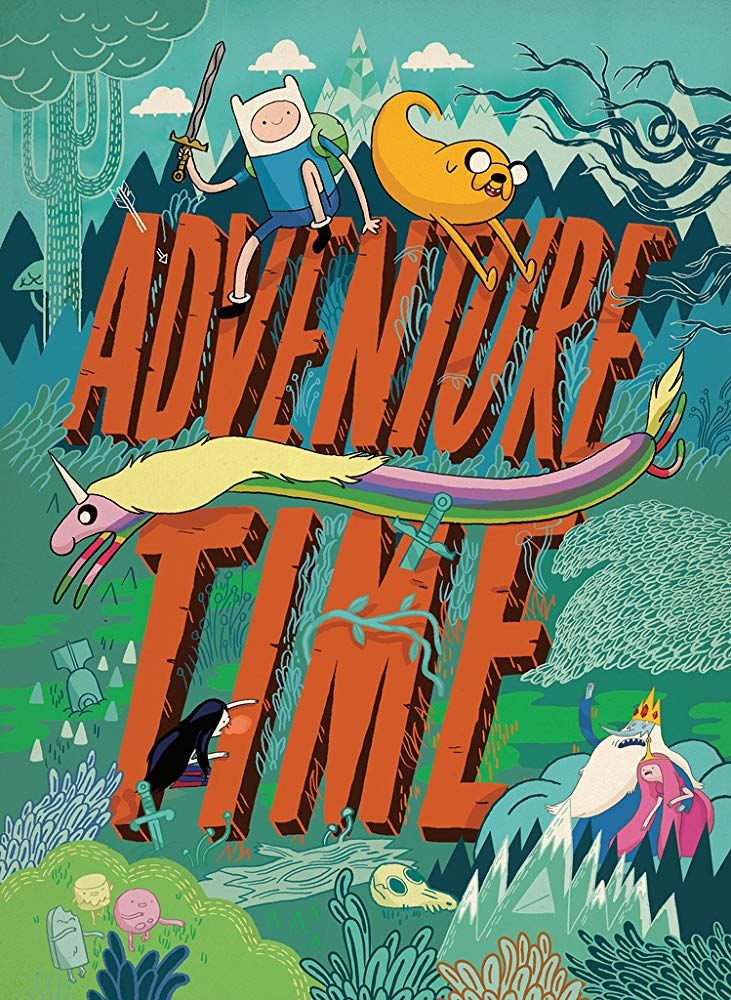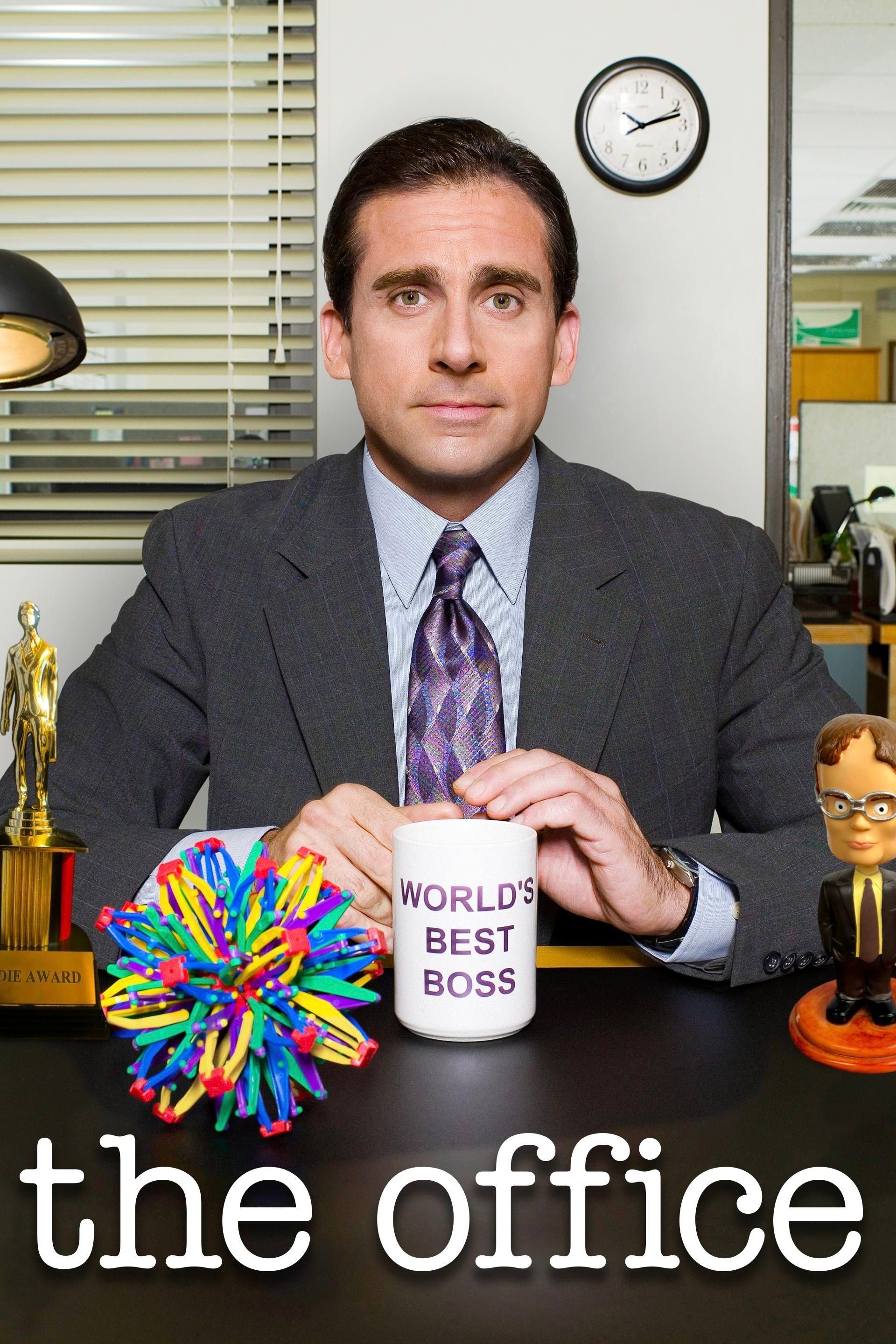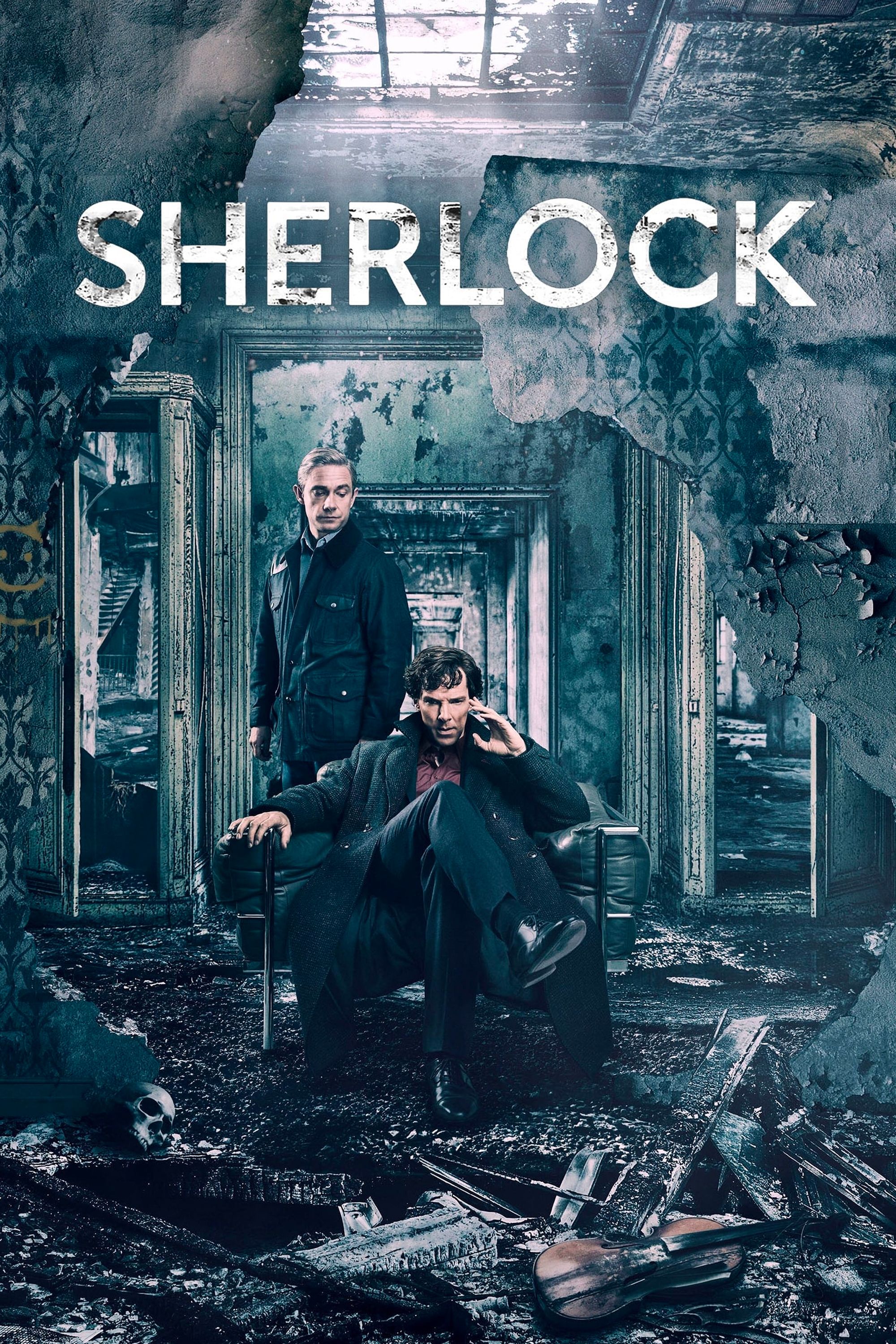Summary
- A successful TV show can be measured by ratings, viewership, and originality of premise, influencing future series.
- The impact of iconic TV shows like Lost, Adventure Time, and Game of Thrones is undeniable, shaping the industry.
- From The Office to Sherlock, each show builds on past works, proving that inspiration drives creativity in television.
The success of a TV show can be determined by the ratings, viewership, and reviews, but it can also be seen in how many series copy its premise. While imitation is the sincerest form of flattery, having too many clones of the same television show can crowd the market, and often the copycats are a weak reflection of the original series. However, borrowing elements of great shows is what sparks new creativity. Sometimes the shows that start as imitations blossom into something unique that goes on to influence others.
Doubtlessly, every great TV series draws on past works for inspiration, showing how art builds upon itself and how no ideas exist in a vacuum.
It’s not always obvious what makes a show so iconic and culturally relevant. Shows that go on to have significant achievements typically avoid the worst TV tropes that ruin shows. Doubtlessly, every great TV series draws on past works for inspiration, showing how art builds upon itself and how no ideas exist in a vacuum. This kind of inspiration is expected, but when suddenly every other show follows the same premise and format, it’s clear that the original show is the one to watch. Even when similar series have merit, starting at the source will provide the most entertainment value.
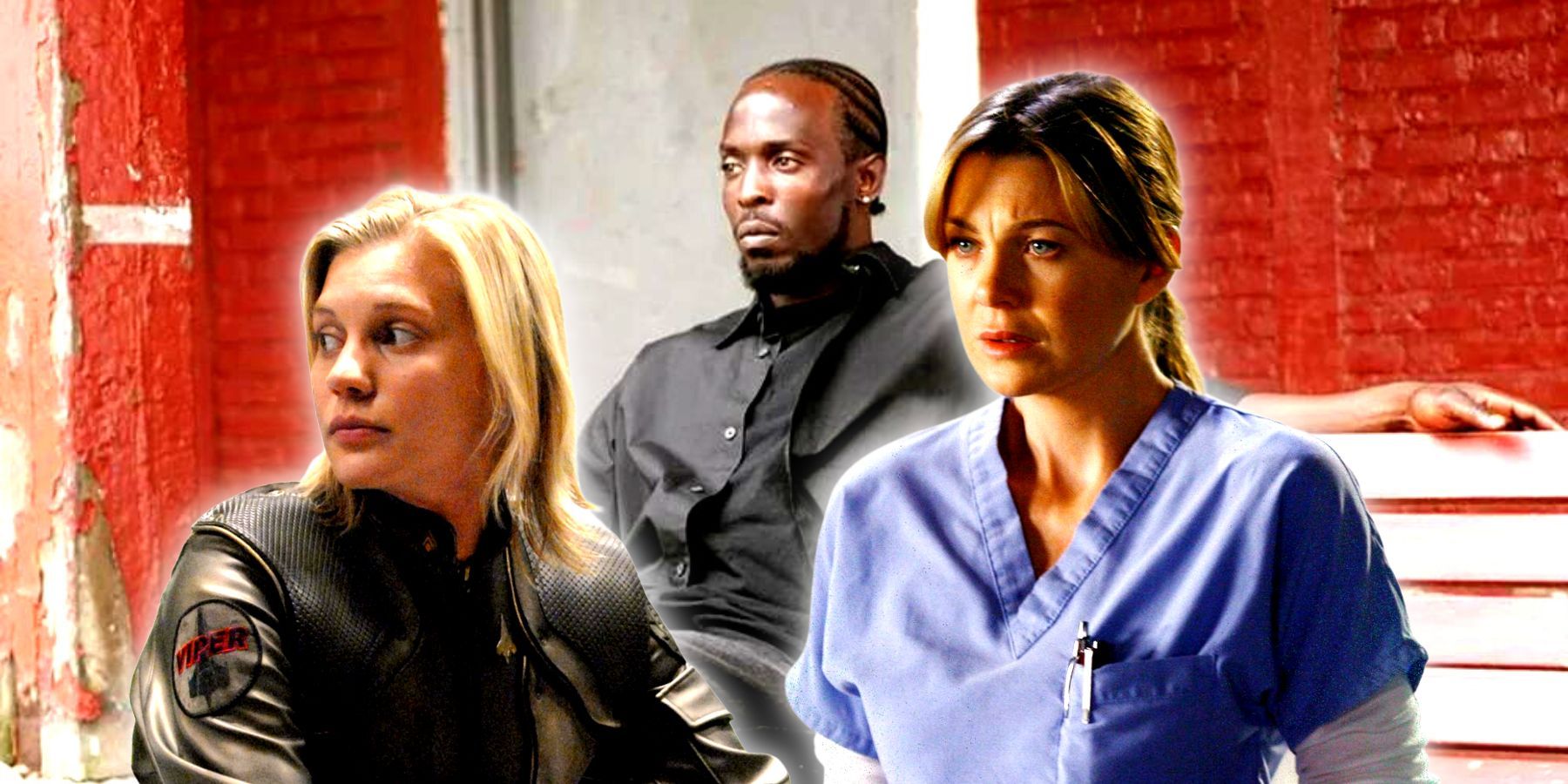
Related
10 Most Influential TV Shows Of The 2000s
Defined by anti-heroes, self-aware humor, and boundary-pushing storytelling, the most influential TV shows of the 2000s remain must-watch series.
10 Lost (2004 – 2010)
Every show with a plane crash owes something to Lost
Though Lost didn’t always have the most cohesive plotting and turned viewers off with Lost moments that made viewers quit the show, the premise and season 1 have had a profound impact. Beginning with the plane crash that kicks off the conflict and action of the show, Lost took familiar story beats about survival and being marooned on a desert island and made them something incredibly original. Recently, shows like Yellowjackets and The Wilds have proven the longevity of Lost‘s narrative structure, and how using a plane crash to start a survival series has become a form of shorthand.
It’s about the interpersonal dynamics between the survivors, and brilliantly uses an ensemble cast with a wide range of perspectives.
Using elements of Lost‘s story immediately indicates to the audience that there’s something else afoot besides the initial trauma and stakes of the crash. Since Lost takes on much more than survival, viewers are primed to question everything they see in similar shows. Additionally, Lost is about more than survival or even time travel. It’s about the interpersonal dynamics between the survivors, and brilliantly uses an ensemble cast with a wide range of perspectives. This, as well as the flash black structure to provide exposition, has been used increasingly in TV since Lost premiered.
9 Adventure Time (2010 – 2018)
The art style and subject matter that changed modern animation
Although animated TV shows are often forgotten in conversations about prestige television, they’re still a vast and important part of the craft. An enormous number of viewers, young and old, love animation, and most of these audience members have likely seen Adventure Time. Even if this isn’t the case, any series that came after Adventure Time has drawn from its art style and unique form of storytelling that evolved throughout the seasons. Many great storytellers came from the Adventure Time writer’s room, like Rebecca Sugar, who went on to create Steven Universe.
Shows like Adventure Time have been hugely important because their impact hasn’t just been felt among creatives but also in audiences. Adventure Time included amazing LGBTQ+ representation and inspired the shows that followed to do the same. The importance of this for young audiences looking to find themselves onscreen can’t be overstated. Communicating serious topics through fantastical worlds is always something animation has thrived on, but Adventure Time took it to the next level and changed the genre.
8 Game Of Thrones (2011 – 2019)
This HBO original brought back fantasy television from the brink of irrelevance
Unlike previous cinematic adaptations, the creators of
Game of Thrones
understood that the complex story was best suited for television.
Fantasy TV shows have come back like never before and much of this can be credited to the success of Game of Thrones. What made the series so ubiquitous while it was airing was the strong source material it had to draw from and the fact that it appealed to fantasy fans and regular TV watchers. Unlike previous cinematic adaptations, the creators of Game of Thrones understood that the complex story was best suited for television. Though not every show that’s followed has drawn from a series of novels, the comparisons to Game of Thrones are easy to draw.
Most recently, the next series in the franchise, House of the Dragon, has capitalized on the show’s built-in following, but it’s only one of many that were inspired by the phenomenon. TV iterations of fantasy novels like Shadow and Bone and The Wheel of Time wouldn’t have been picked up for series without Game of Thrones‘ proven track record. There has also been a revitalization of previously adapted work, like The Rings of Power which expands on the existing lore and world of TheLord of the Rings.
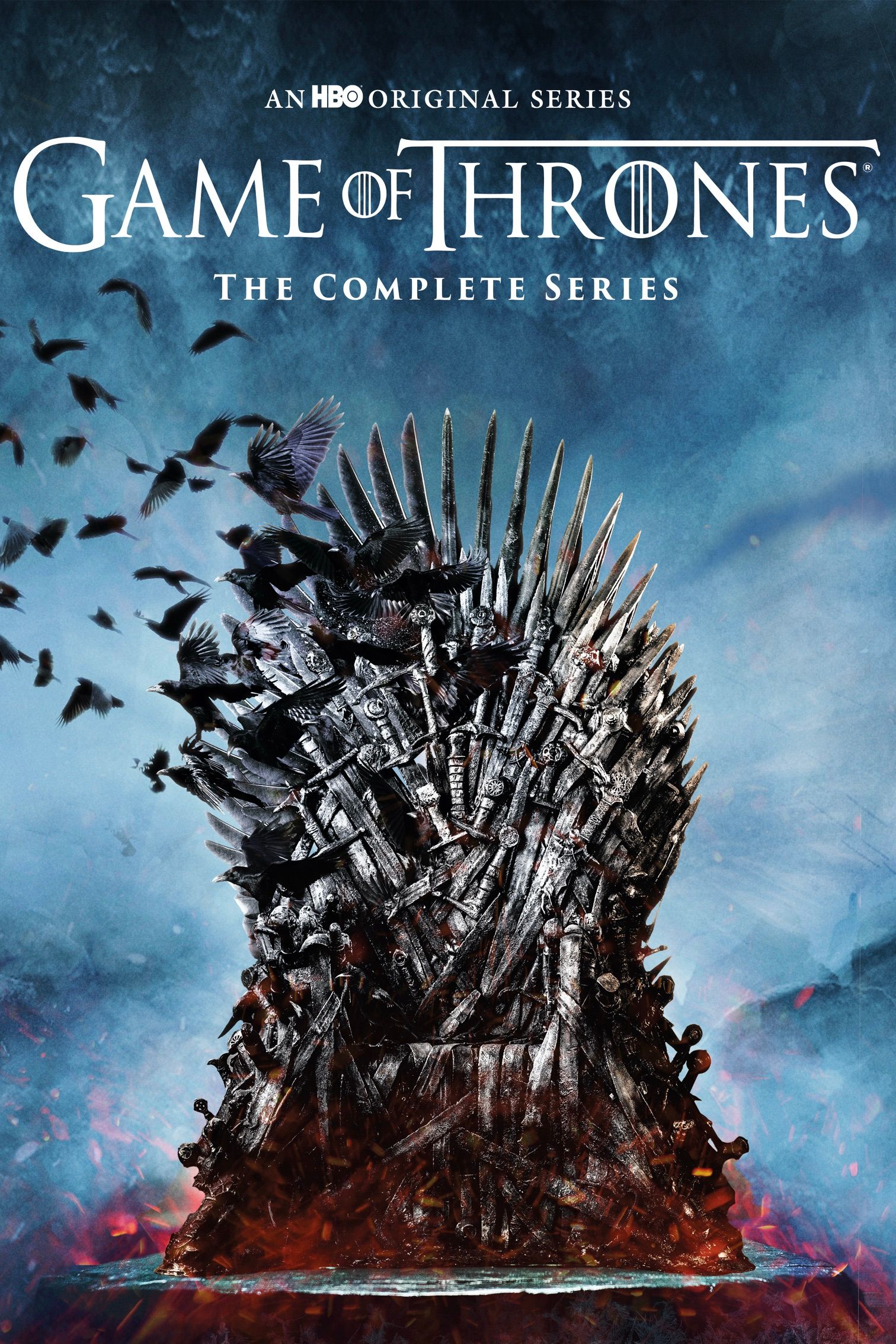
Game Of Thrones
Created by David Benioff and D.B. Weiss, Game of Thrones is a TV series based on the book “A Song of Ice of Fire” by George R. R. Martin. It tells the story of the ongoing battle between the Seven Kingdoms of Westeros – as they fight for control of the coveted Iron Throne. Friction between the houses leads to full-scale war. All while a very ancient evil awakens in the far north. Amidst the war, a neglected military order of misfits, the Night’s Watch, led by House Stark’s Jon Snow, is the first to encounter icy horrors that threaten all realms of men. The series premiered on HBO in the United States on April 17, 2011, and quickly became one of the biggest event series in the “Golden Age” of TV. Winner of 38 Primetime Emmy Awards, Game of Thrones has attracted record viewership on HBO and has a broad, active, international fan base.
- Release Date
- April 11, 2011
- Seasons
- 8
- Directors
- David Nutter , Alan Taylor , D.B. Weiss , David Benioff
7 The Office (2005 – 2013)
Though a remake itself, The Office has become the standard for sitcoms
The original British TV series, The Office, is quite similar to the first few seasons of the American version that went on to run for nine seasons. However, as the seasons progressed The Office developed into its own entity and changed the landscape of U.S. sitcoms in the late 2000s and early 2010s. Mockumentary-style programming that came after like Parks and Recreation, and the more recent Abbott Elementary, aren’t copy-and-paste iterations of The Office, but they all exist in a similar category. What remains unique to The Office is the iconic nature of the characters and performances.
Despite a dip in quality in the last several years of the show, The Office remains almost as relevant today as it was while airing. The new The Office spinoff sounds like a reboot of Parks and Recreation rather than an immediate progression of the show, but that shows how far-reaching The Office‘s influence is. Workplace dynamics are a standard of sitcom setting and conflict, but The Office pushed boundaries in terms of subversive and edgy humor, especially in the beginning. As comedy evolves, The Office is still a touchstone for television.
6 The Sopranos (1999 – 2007)
Even if crime families are dying out, shows about them never will
From the beginning of The Sopranos, it’s clear that the show is about a man whose way of life and purpose for existence is fading. It opens with a discussion about how organized crime is on its way out, and that the heyday of the gangster is long gone. Despite this, there are few shows as iconic, important, and influential as The Sopranos. Tony Soprano (James Gandolfini) didn’t invent the antihero archetype. However, he catapulted it into the mainstream so that for the next two decades any prestige television show had a sympathetically bad man as its protagonist.
The Sopranos
was one of HBO’s first big hits, increasing the interest in and availability of premium cable, which, in turn, led to the development of streaming.
Not only did the antihero become mainstream thanks to The Sopranos, but stories about the mafia grew in popularity and are still being made today. Outside of series that can be traced directly back to The Sopranos in tone and style, there are many whose format and existence are owed to the show, if only tangentially. The Sopranos was one of HBO’s first big hits, increasing the interest in and availability of premium cable, which, in turn, led to the development of streaming.
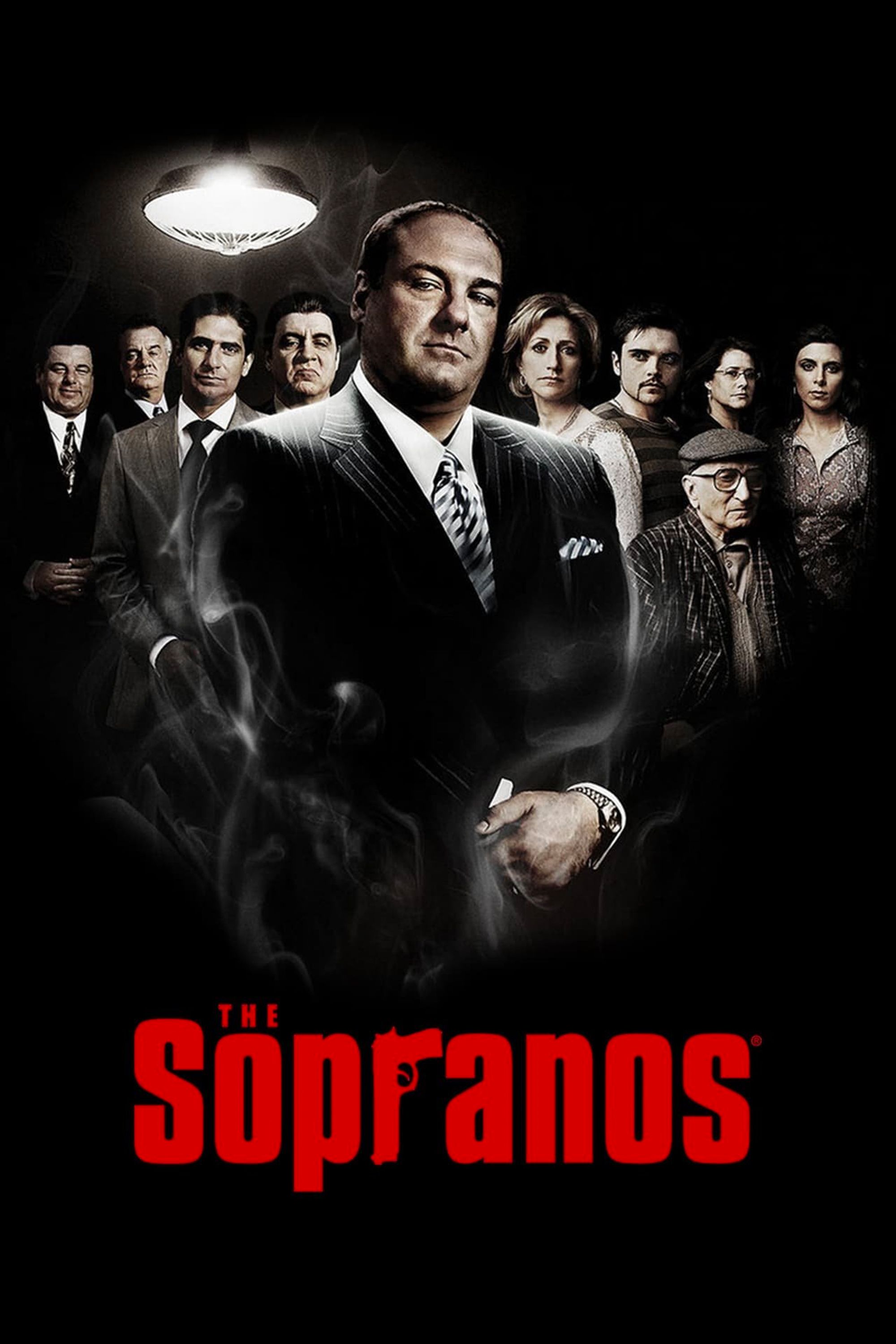
The Sopranos
Considered to be a quintessential drama series to watch, The Sopranos is a crime-drama series that follows Tony Soprano, who tries to manage the expectations of an Italian-American patriarch while acting as the head of a prolific New Jersey crime family. Burdened by the stress of the expectations thrust upon him, Tony regularly visits a therapist throughout the series run. This helps give context to Tony’s actions as a ruthless boss with violent tendencies.
- Cast
- James Gandolfini , Lorraine Bracco , Edie Falco , Michael Imperioli , Dominic Chianese , Steven Van Zandt , Tony Sirico , Robert Iler , Jamie-Lynn Sigler
- Release Date
- January 10, 1999
- Seasons
- 6
- Network
- HBO Max
- Showrunner
- David Chase
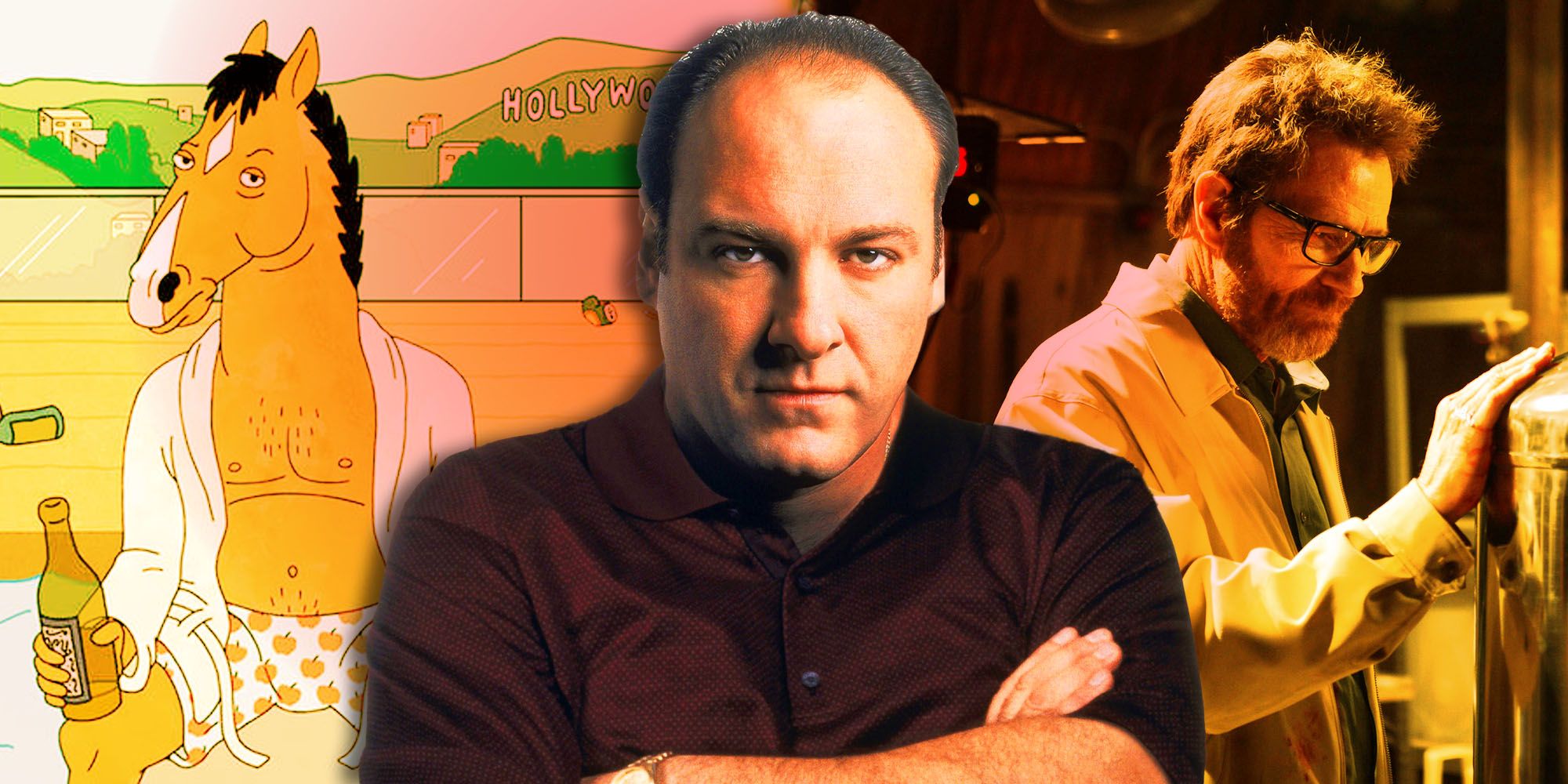
Related
10 TV Shows That Would Not Exist Without The Sopranos
The iconic HBO show, The Sopranos, had a major influence on several TV shows, altering the course of television and who we ultimately root for.
5 Mad Men (2007 – 2015)
Increasing attention towards period dramas and the lives of the rich
Mad Men doesn’t exist in a vacuum and is the direct descendant of The Sopranos in many ways. Don (Jon Hamm) is a traditional antihero, and the creator, Matthew Weiner, worked on The Sopranos for many years before Mad Men premiered. However, it didn’t take long for Mad Men to rise to the top of lists of the best TV shows of all time alongside The Sopranos. One of the aspects of Mad Men that caught the audience’s eye and has been so often copied is the period piece format and immersive art direction.
Setting the series in New York in the 1960s meant the show’s visual language would automatically be distinctive, iconic, and unforgettable. This inspired TV like Halt and Catch Fire, which is about tech innovation in the 1980s, and the chess-based show The Queen’s Gambit. Outside the period, Mad Men encouraged future shows to explore the depravity of the upper class and give an inside look into how people abuse their money and power. The most famous series to tackle these topics is the recent unparalleled drama, Succession.
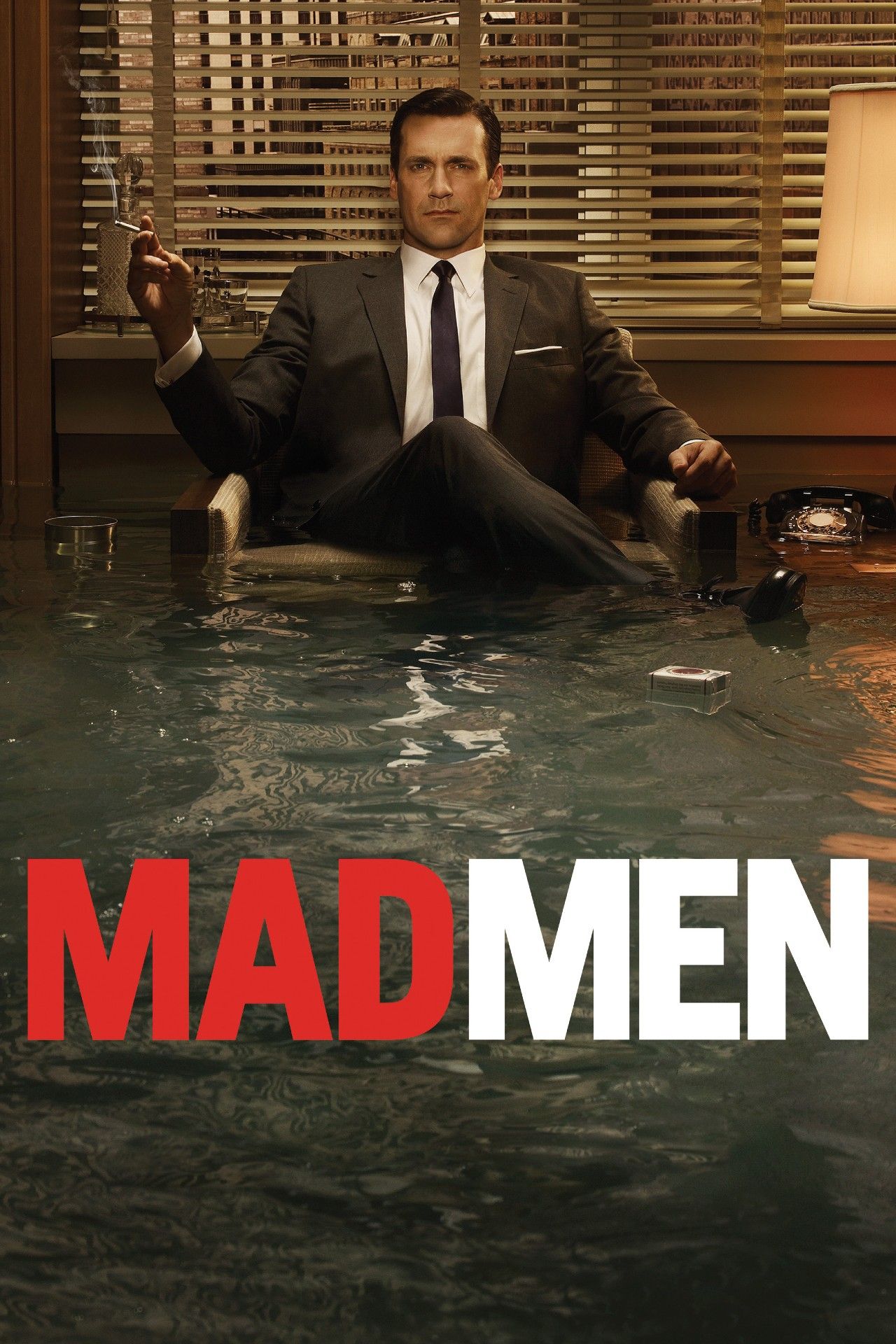
Mad Men
Mad Men is the award-winning show created by Matthew Wiener that stars Jon Hamm as Don Draper, a masterful ad man in the high-speed advertising world. Set between the 1960s and 70s; Mad Men explores this “Golden Age” of advertising, where everyone has something to sell, and those who don’t score a quick win are out of the game. The series also examines the world from a few other character’s perspectives, such as Peggy Olson (Elisabeth Moss), a young woman who starts as a secretary for Don despite the difficulty for women to be taken seriously in business during this time, rises to the challenge to become an ad woman of her own.
- Cast
- Jon Hamm , Elisabeth Moss , Vincent Kartheiser , January Jones , Christina Hendricks , Bryan Batt , Aaron Staton , Rich Sommer
- Release Date
- July 19, 2007
- Seasons
- 7
- Showrunner
- Matthew Weiner
4 Sherlock (2010 – 2017)
An updated retelling of classic literature with technological innovations
Its ability to combine both the classic literature on which it was based and translate that into the modern age with new ways of including technology set the tone for the next phase of TV.
It’s fair to say that crime and mystery TV shows have never needed much help getting on the air, but Sherlock demonstrated just how much of an audience there is for the genre. This is particularly the case with Sherlock as it premiered at a time when the influx of technology and social media was changing the landscape of television and detective work. Its ability to combine both the classic literature on which it was based and translate that into the modern age with new ways of including technology set the tone for the next phase of TV.
The Sherlock Holmes stories never went out of style, but since Sherlock premiered more and more of them have been cropping up. Elementary is an excellent example of this, as it almost directly copies the premise and format of Sherlock. Additionally, detective shows from the past decade have been clearly impacted by Sherlock and the way it visually portrays the mental acuity of Sherlock (Benedict Cumberbatch). Even if they aren’t modern iterations, crime series about famous people and times in U.K. history are more accessible than ever.
3 The Twilight Zone (1959 – 1964)
Horror anthology and speculative fiction were reinvented after its premiere
Every piece of science fiction and horror television that came after The Twilight Zone has a piece of its story and format that can be attributed to the revolutionary show. The Twilight Zone didn’t invent the anthology formula, but it did perfect it and helped make them mainstream outside the realm of variety shows from the mid-20th century. Its unique blend of sci-fi and horror is a genre connection that’s only become more relevant and malleable as science and technology have evolved.
Guillermo del Toro’s Cabinet of Curiosities reaches the logical conclusion of the type of series that The Twilight Zone created. The Twilight Zone has influenced movies and TV alike, not just for its interesting meditations on how the future will unfold, but because of the relevant social commentary it employs. Horror TV shows and films don’t stop at being terrifying, they make a point of looking critically at contemporary issues. Parody has also been a large part of The Twilight Zone‘s history, as even if a show hasn’t drawn from the series, it’s paid homage to its iconic episodes.
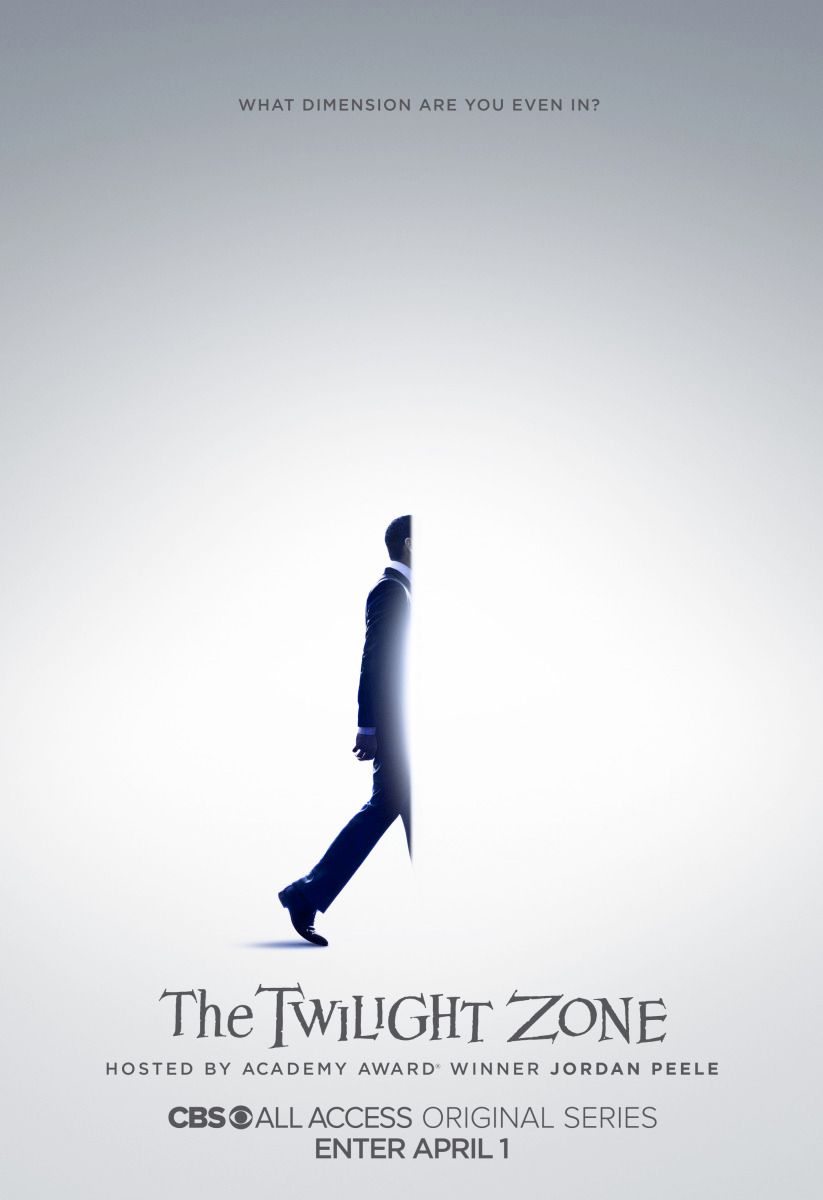
2 Star Trek: The Original Series (1966 – 1969)
Space travel and exploration was never the same after Star Trek
Despite airing for only three seasons during its original run, Star Trek is one of the biggest sci-fi franchises of all time. Spawning movies and a myriad of TV shows that exist within the same universe, Star Trek has pushed the boundaries of stories about space travel and exploration. Besides the series that are part of the extended canon, plenty of shows owe a lot to Star Trek, and most of them have become enormously popular in their own right. Takeoffs like The Orville or Red Dwarf lovingly poke fun at the series.
Of course,
Star Trek
didn’t invent the concept of space travel or was the first to explore it, but it took hold of popular culture in an integral way.
Conversely, shows like Firefly and Battlestar Galactica take the initial premise and run with it. Of course, Star Trek didn’t invent the concept of space travel or was the first to explore it, but it took hold of popular culture in an integral way. Once the effect of the first show became clear, the other series followed and, in turn, inspired new generations of filmmakers with the expanded Star Trek universe. Though the settings and technologies are fantastical, the characters are real, which roots the story and makes it relatable to audiences of all generations.
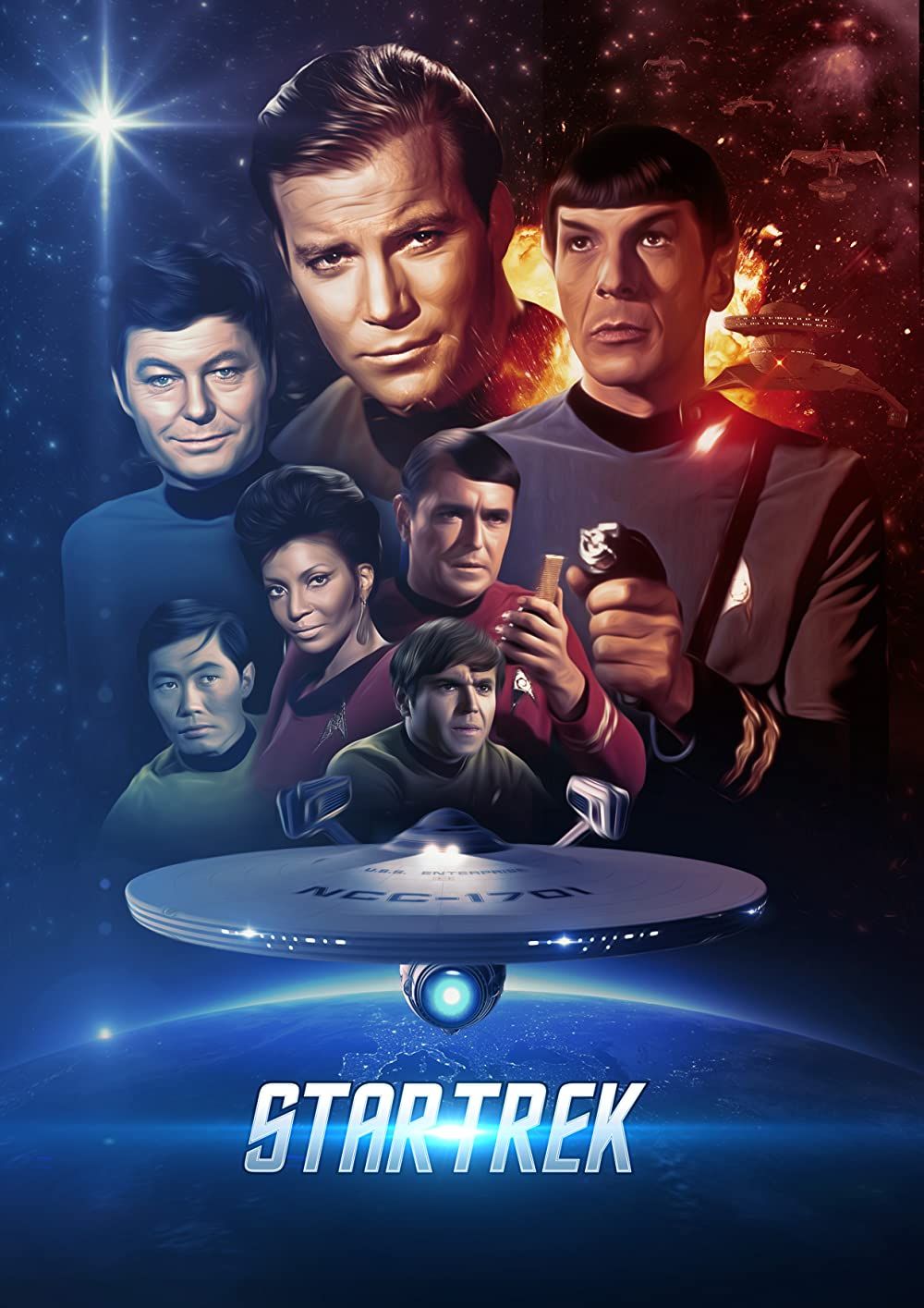
Star Trek: The Original Series
Star Trek: The Original Series follows the exploits of the crew of the USS Enterprise. On a five-year mission to explore uncharted space, Captain James T. Kirk (William Shatner) must trust his crew – Spock (Leonard Nimoy), Dr. Leonard “Bones” McCoy (Forest DeKelley), Montgomery “Scotty” Scott (James Doohan), Uhura (Nichelle Nichols), Chekov (Walter Koenig) and Sulu (George Takei) – with his life. Facing previously undiscovered life forms and civilizations and representing humanity among the stars on behalf of Starfleet and the United Federation of Planets, the Enterprise regularly comes up against impossible odds and diplomatic dilemmas.
- Release Date
- September 8, 1966
- Seasons
- 3
- Showrunner
- Gene Roddenberry
1 Law & Order (1990 – Present)
The series that established the rules of the crime procedural
Law & Order: SVU might have taken off in popularity more than the original Law & Order, but there would be no franchise without the first show. Crime dramas would look completely different without the innovative tactic of showing the investigation and the litigation of a criminal case. Though every crime procedural puts its own twist on the genre, few can claim Law & Order hasn’t directly impacted their formulas. Some of the most well-known shows, like CSI, NCIS, and Criminal Minds, have developed franchises of their own, and it’s all thanks to Law & Order.
This isn’t to say that every procedural is the same, or that they don’t have individual attributes, but revisiting the beginning of Law & Order demonstrates what a hold crime dramas have on U.S. TV, and how much of that is because of Law & Order. The creator, Dick Wolf, has spun the success of Law & Order into all the TV shows in the Dick universe, which include the Law & Order shows and the One Chicago franchise. Though Law & Order was initially canceled in 2010, the series was brought back because of its overwhelming influence.

